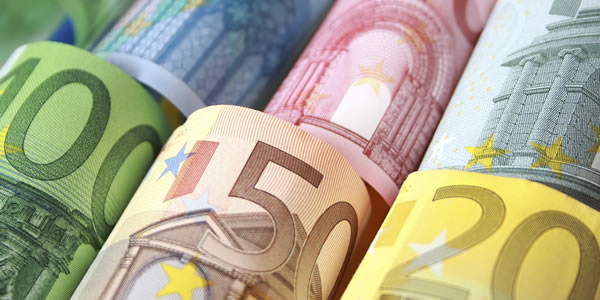The Euro to Australian Dollar (EUR/AUD) and Euro to New Zealand Dollar (EUR/NZD) exchange rates recorded additional gains on Friday after upbeat German Retail Sales stats.
The annual figure rose to 4.0% in December from the previous -1.0%.
Earlier… The Euro to Australian Dollar (EUR/AUD) and Euro to New Zealand Dollar (EUR/NZD) exchange rates advanced quite dramatically (+1.23%) at the start of Thursday’s European session after Germany’s Unemployment Rate fell to 6.5% in January from a negatively revised 6.6% in December.
The number of jobless citizens in Germany edged 9K lower—pushing the unemployment rate to the lowest level since 1990.
Meanwhile, the German Consumer Price Index (CPI) entered deflation in January, falling from +0.2% to -0.3%.
Industry expert Jennifer McKeown commented: ‘Looking ahead, energy effects are likely to keep German inflation negative for the next six months, but for now we are not forecasting a prolonged and widespread bout of deflation.’
RBNZ Official Cash Rate Statement Crushes New Zealand Dollar Exchange Rate
Meanwhile, the Reserve Bank of New Zealand (RBNZ) put a cat amongst the pigeons when Governor Graeme Wheeler suggested that the next official cash rate (OCR) decision could move ‘either up or down’.
Although the key rate remained at 3.5% on Wednesday, investors are now pricing in the possibility of a rate cut by the central bank in the near future.
Wheeler stated: ‘In the current circumstances, we expect to keep the OCR on hold for some time. Future interest rate adjustments, either up or down, will depend on the emerging flow of economic data.’
Euro to Australian Dollar (EUR/AUD) Exchange Rate Forecast
The Euro could be in for a highly influential day on Thursday with the release of the German Consumer Price Index (CPI) still to come. Inflation is expected to fall from 0.2% to -0.1% in January on the year and could pressure the Euro lower.
In addition, Eurozone Consumer Confidence, Economic Confidence and Industrial Confidence are all out for publication on Thursday and could also influence the Euro exchange rate.
However, the biggest day for Euro trading this week is likely to be Friday when Eurozone ecostats emerge. Eurozone Unemployment Rate and Consumer Price Index figures are all scheduled for release and could have a major impact on the Single Currency.
Eurozone inflation is forecast to fall from -0.2% to -0.5% in January on the year, while the core measure is predicted to remain the same at 0.7%. The further tumble into deflation territory could significantly pressure the Euro to Australian Dollar (EUR/AUD) exchange rate lower.
Meanwhile, the Australian Dollar sank against other majors as speculation for a rate cut by the Reserve Bank of Australia heightened. Westpac currency strategist Sean Callow commented: ‘We are focusing very firmly back on the domestic economy, even if some of the expectation of a rate cut next week does seem to rest on the notion of why should the RBA be the only central bank not moving to looser monetary policy.’
Like Westpac, Barclays Australia has also forecast rate cuts beginning in February.
Chief economist Kieran Davies stated: ‘The strong signalling of an imminent cut has seen us reluctantly shift to factoring in two 25-basis-point cuts in February and May.’
The Euro to Australian Dollar (EUR/AUD) exchange rate is trending in the region of 1.4485. The Australian Dollar to Euro (AUD/EUR) exchange rate is residing at 0.6907.



